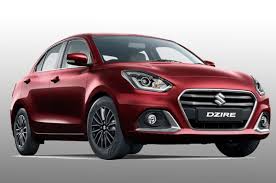The myths, the facts
As the cost of premium motor spirit (PMS) popularly known as fuel is getting out of the reach of vehicle owners across the world, nations are turning to use of vehicles powered by compressed natural gas (CNG).
In Nigeria particularly, since the escalation of fuel price in June 2023, a lot is being talked about CNG vehicles. Governments have begun to procure buses powered by CNG for public transport, while private car owners are gradually converting their cars to use CNG.

Generally, CNG is a far cheaper energy and cleaner than fossil fuel, but there are fears about safety of CNG vehicles.
Here are the top five takeaways you should know about CNG vehicles.
Myth No. 1: CNG cars are unsafe
This is probably among the worst assumptions made about CNG. You should know that CNG has a higher ignition temperature than petrol which makes it less dangerous. CNG can operate at up to 700 degrees Celsius, as compared to petrol’s 455 degrees. So, for instance, if there is an internal temperature rise, it is unlikely that a CNG car will catch fire faster than a petrol car. Also, the cylinders which carry CNG are a lot tougher than the traditional petrol tanks. Before they make their way to cars, they undergo extreme tests to eliminate the risks of leakage.
Myth No. 2: CNG cars are unreliable
If you think CNG-run cars live shorter than traditional petrol cars, then you are mistaken. CNG is lighter than petrol or diesel and is also non-corrosive which helps the engine parts stay intact even after lakhs of kilometres. This ensures that the repair cost would be lower over the lifetime of the car. In addition, with a CNG car, you don’t have to change the engine oil frequently, as you would do with a traditional car. So if you are a busy person, and find it tedious to take your car for frequent service checks, you will be better off with a CNG-run car.
Myth No. 3: CNG is expensive
There is no hiding the fact that the initial cost of CNG cars is higher than their petrol counterparts. However, that is a one-time scenario, since the cost of CNG is nowhere near petrol’s value.
 The price of CNG has been fluctuating for quite a while, but according to our research, it juggles between N230 and N270 per kg. Compared to the lowest petrol price in the country, CNG is a lot cheaper.
The price of CNG has been fluctuating for quite a while, but according to our research, it juggles between N230 and N270 per kg. Compared to the lowest petrol price in the country, CNG is a lot cheaper.
Myth No. 4: CNG cars have a smaller boot-carrying capacity
CNG cars do not have ample boot space, and there is no way one can deny the fact. However, with the emerging tech in the auto industry, there could be solutions regarding the reduction of cylinder sizes to accommodate more luggage. In Nigeria, commercial buses which convert to CNG have their energy tanks hidden under the seats. For cars, the gas tank is built in the boot. This may take away space from the boot but the energy cost advantage far outweighs boot space merits.
Myth No.5: The availability of CNG is scarce
Initially, the CNG filling pumps were fewer and people had to join massive lines to get their vehicles fueled up. But fast forward to today, and we hardly get to see such scenarios, thanks to over 5,000 CNG pumps across across the country. Yes, the number is really low compared to that of petrol pumps, but the number of CNG-equipped cars is lower in number as well. In the future, there will be more numbers of CNG filling stations.
With additional report from Evoindia


